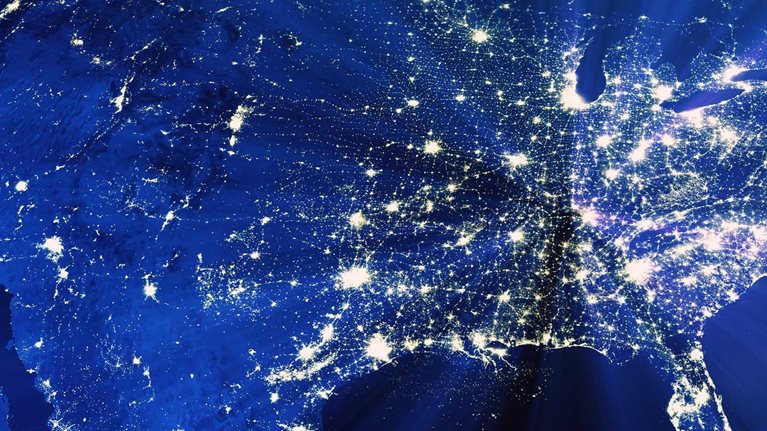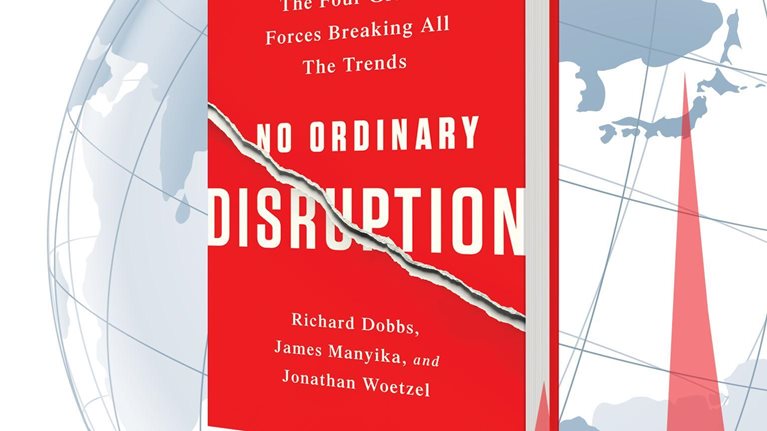More than 20,000 independent designers and artists showcase their work on Pinkoi, a Taiwan-based online marketplace. The company has connected with customers in more than 47 countries, using Facebook to expand its reach throughout the Asia–Pacific region.
The Estonian start-up coModule has created technology that brings the Internet of Things to electric bikes and scooters. The prototype was unveiled in Barcelona, seed funding came from Germany, and components are sourced in China. The company is scaling up production and eyeing user markets across Europe and Asia.
Dr. Chibuzo Anaso has developed an app that helps diabetes patients take charge of their condition. As the product took off in his home market of South Africa, patients in Nigeria and Kenya learned about it through Facebook and Twitter—and today two-thirds of its subscribers come from across the broader African continent and the Middle East.
Globalization was once driven almost exclusively by the world’s governments, large multinational corporations, and major financial institutions. But now—thanks to digital platforms with global reach—artisans, entrepreneurs, app developers, freelancers, small businesses, and even individuals can participate directly. New research from the McKinsey Global Institute (MGI) uses novel data to analyze the extent of the connections and their economic impact.
The biggest of these online platforms have grown to a scale never before seen (Exhibit 1), and their users are increasingly international. Individuals from Canada to Cameroon can forge their own global connections, whether for business, personal ties, entertainment, education, or simple curiosity about the world beyond their own borders. MGI analysis of international ties on Facebook, Twitter, LinkedIn, and WeChat shows that some 900 million people have at least one international connection on social-media platforms (even adjusting for overlap between their users). More than 12 percent of Facebook friendships are between people living in different countries, and half of active Facebook users have at least one cross-border friend—a threefold increase from 2014.

Furthermore, MGI finds that social media plays an increasingly important role in connecting people in emerging economies to the developed world, thereby opening new opportunities for work, learning, and personal connections. The share of Facebook users with cross-border friendships is higher in emerging countries than in developed ones (54 versus 44 percent)—and it is growing rapidly, having posted a 3.6 times increase from 2014.
Beyond building personal networks and friendships, individual participation in these global platforms has important economic implications. For businesses, digital platforms provide a huge built-in base of potential customers and effective ways to market to them directly. And as social media exposes consumers from around the world to what’s available, products can go viral on an unprecedented scale. Adele’s recent hit “Hello” racked up 50 million views on YouTube in its first 48 hours, and her smash album 25 was number one on the download list of iTunes stores in 110 countries during its first week of release. For individuals, these platforms offer new ways to learn, to collaborate, and to develop capabilities—and to showcase talents to potential employers.

Would you like to learn more about the McKinsey Global Institute?
Small and midsize enterprises (SMEs) that join online marketplaces are taking advantage of this potential to scale up rapidly and connect with customers and suppliers anywhere in the world. Facebook estimates that its platform includes more than 50 million such companies, up from 25 million in 2013—and some 30 percent of their fans are cross-border (Exhibit 2). Amazon now hosts some two million third-party sellers. The share of SMEs that export is over seven times higher on eBay than among offline businesses of comparable size. PayPal enables cross-border transactions by acting as an intermediary for SMEs and their customers. Microenterprises in need of capital can turn to platforms such as Kickstarter, where nearly 3.3 million people, representing nearly all countries, made pledges in 2014. The ability of small businesses to reach global audiences supports economic growth everywhere.

The world is still far from flat, but its connections are beginning to touch a far broader range of countries, enterprises, and people. Instead of waiting for the benefits of globalization to trickle down from large corporations, SMEs can become micromultinationals in their own right, and start-ups can be “born global.” Individuals can tap into opportunities, information, and ideas from anywhere in the world. Call it the new era of globalization for the little guy.
This article is an excerpt from the forthcoming McKinsey Global Institute report Digital globalization: The new era of global flows, to be published in late February, on mckinsey.com.


